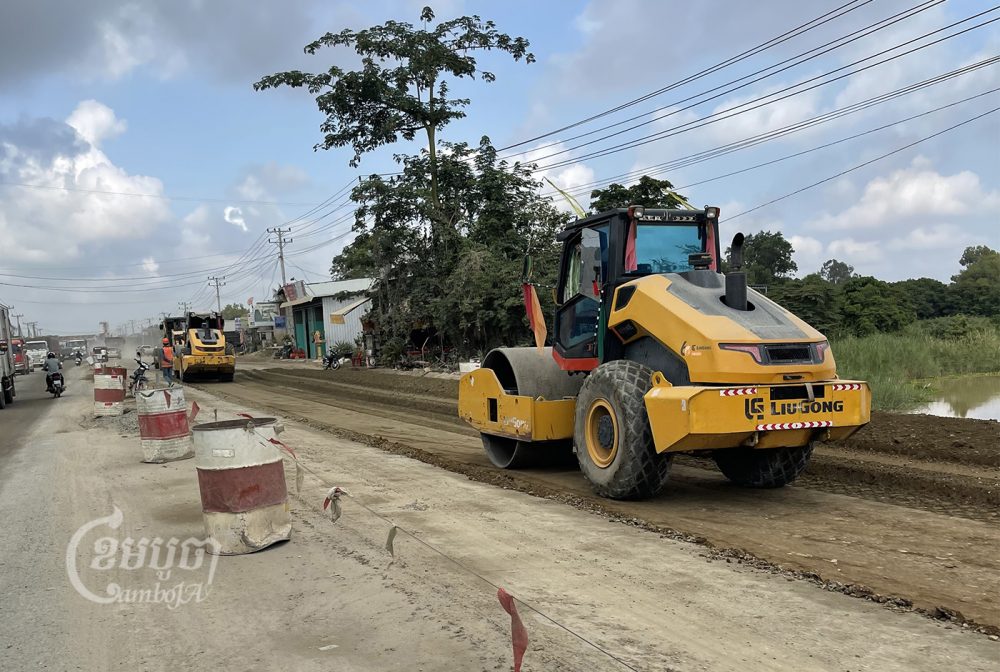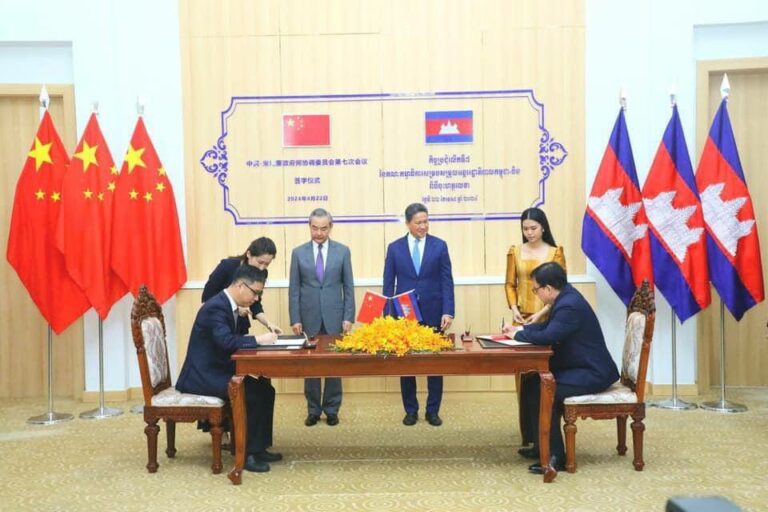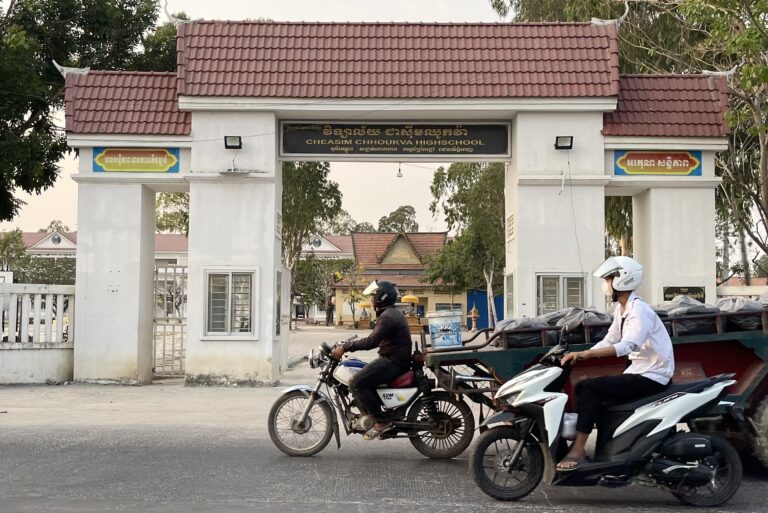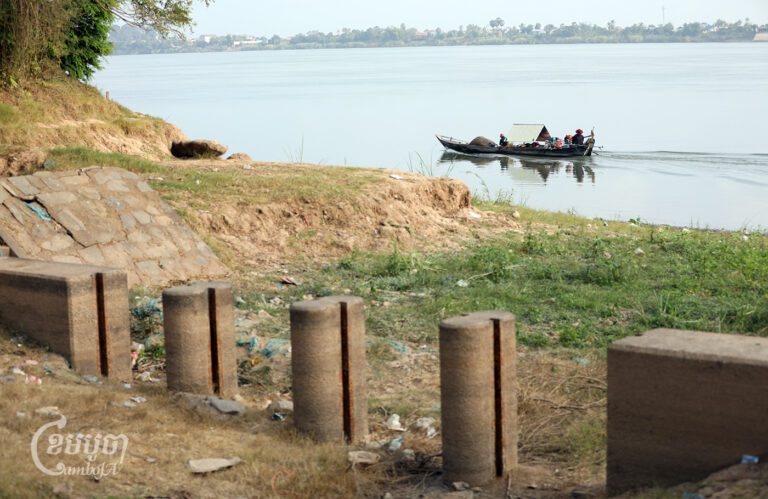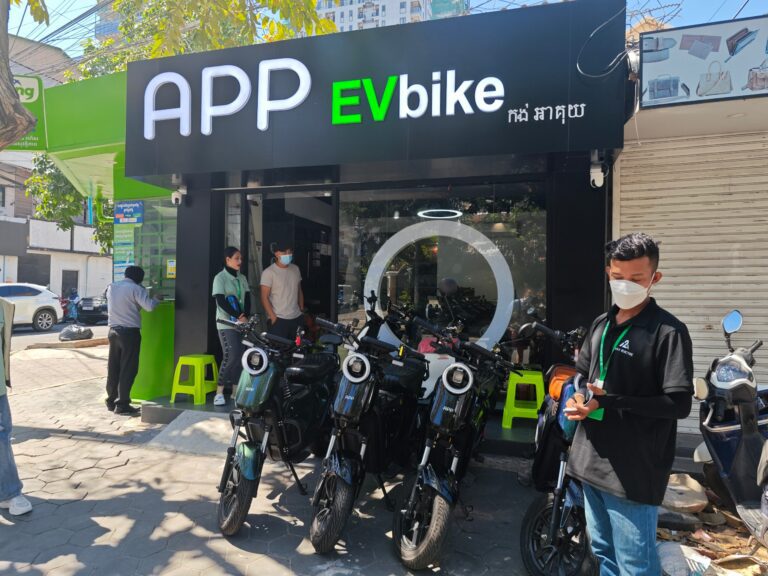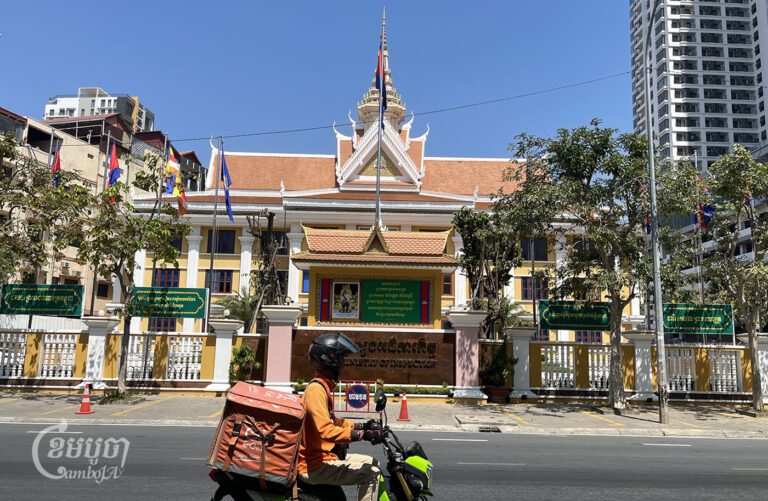As foreign funders drive the construction of major new infrastructure projects in Cambodia, an inconsistent regulatory approach may be opening lanes for shoddy construction.
Last month, an inspection by the Ministry of Public Works found irregularities in the builds of National Roads 2 and 22, which are being funded by the government of South Korea.
Public Works Minister Sun Chanthol announced April 23 that most of National Road 2, which runs between Takhmao city and Takeo province, but also National Road 22 appeared to fall below acceptable quality levels.
“I have directed a working group to begin all checks, and where any sections are found to be non-compliant with standards, they will be required to rebuilt,” Chanthol said.
The minister said the quality standards of road construction are generally rated on a scale of 430 points. National Roads 2 and 22 are coming in at just 340 to 420 points, he said.
The public announcement has prompted an investigation by the Korean embassy in Phnom Penh. For now, the roads appear to be examples of infrastructure projects built as foreign Official Development Assistance (ODA) that fail to meet national standards. Cambodian think-tank Future Forum has pointed to low regulatory compliance for such projects as a key factor in the trend.
In 2021, the Public Works Ministry also found construction of National Road 3 to be of poor quality, prompting the ministry to request reconstruction.
That separate road runs from Phnom Penh to Kampot province and was rehabilitated and expanded in 2018 with more than $200 million in funding from China. The roadwork was completed by the China Road and Bridge Corporation (CRBC).
In the more recent examples of National Roads 2 and 22, construction is being overseen by the Korean Hanshin Engineering & Constructions Company. Minister Chanthol has stated the company did not have enough machinery to complete the projects, or was using poor-quality equipment.
The $56 million projects are funded by South Korea with contribution from the Cambodian government. Hanshin Engineering has also won the contract to build National Road 21, which shows similar issues, according to Chanthol. He warned to remove Hanshin Engineering from bidding for additional projects.
“It is a successful bidder for its low-cost construction, but we also have taken note of the company and are discussing whether we should allow Hanshin to bid again,” he said.
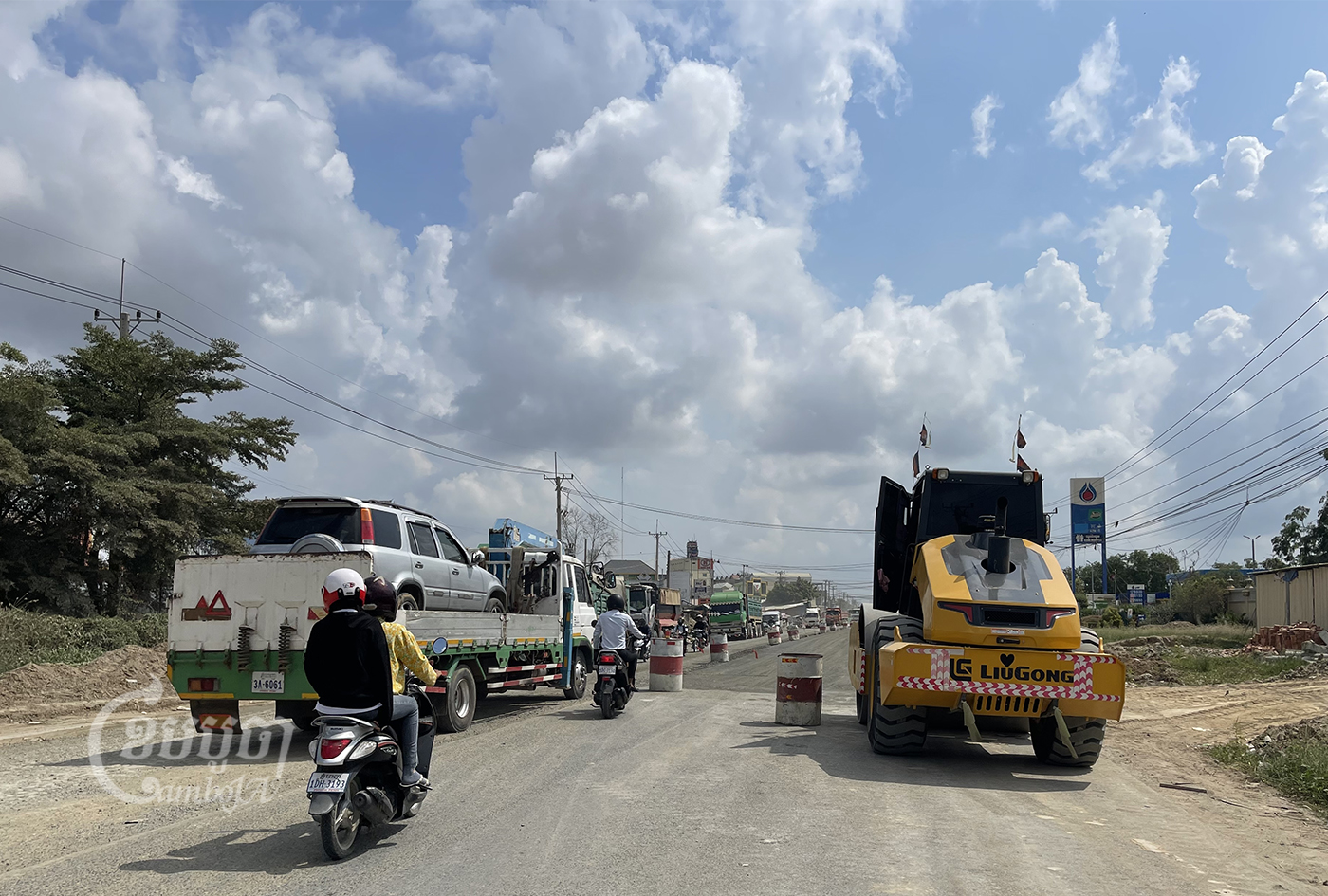
Kim Beomseo, the economic and financial attaché at the South Korean embassy, told CamboJA by email that he is working to find answers.
“I am investigating the exact facts of the issue through interviews with officials. I don’t think I can answer until the investigation is complete,” he said.
Government’s uncleared system?
Research from Future Forum monitoring on foreign-funded infrastructure projects in Cambodia between 2005-20 has found that most donors haven’t used the national ODA system for implementation of projects.
Japan, China and South Korea are Cambodia’s main development partners for infrastructure development assistance.
Future Forum reporting on the issue suggests China has not used the ODA system for any of its 70 projects in the given timeframe. Japan and South Korea used the system respectively for just 2.4 percent of a total 554 projects, and 1.9 percent of 420 projects.
Future Forum also reported that other development partners, including the E.U., France and the U.S., also rarely use the state’s procurement system.
At the same time, the think tank said the formal rules of the procurement system in general for ODA projects in Cambodia remain unclear, with no general rules or standards for application.
“This irregular implementation is even implicit in the country’s regulation,” the Future Forum report said.
On the other hand, the report noted the World Bank and ADB have consistently used the government’s procurement system for projects in the last fifteen years.
The Chinese embassy in Phnom Penh did not respond to a request for comment made by CamboJA via its official Facebook page.
Yuji Shinohara,a representative of the Japan International Cooperation Agency’s (JICA) Cambodia office told CamboJA by email that there are four main structures for the agency’s projects in the kingdom, including grants, technical cooperation, and private sector investment finance. The fourth is a yen loan system. He said these schemes go through different procedures for implementation.
Shinohara said that only for grant projects are Japanese companies eligible to carry out contracts, but that open bidding is still conducted in Cambodia.
“I think the projects are conducted under the governmental procurement system,” he said, adding that technical cooperation projects are not.
Article 3 of Cambodia’s 2012 Law on Procurement states development partners could either abide by the law or follow the agreement of respective parties, according to Future Forum’s report.
However, the report also stated that, as Cambodia has no laws regulating development assistance or aid projects, such projects are then managed by the Committee for Rehabilitation and Development of Cambodia, under the CDC.
Vasim Sorya, spokesman for the Public Works Ministry, told CamboJA the use of foreign aid was in line with the direction of the government and the donors.
Sorya refused the findings of Future Forum, claiming that all projects were being properly implemented based on contracts and agreements between the government and participating companies.
“We don’t know how the report is accurate and what is the source of it,” he said. “All projects were in accordance with proper procedures and agreements and that money isn’t merely squandered.”
He said donors routinely send expert officers to monitor the implementation of projects and the utilization of their budget.
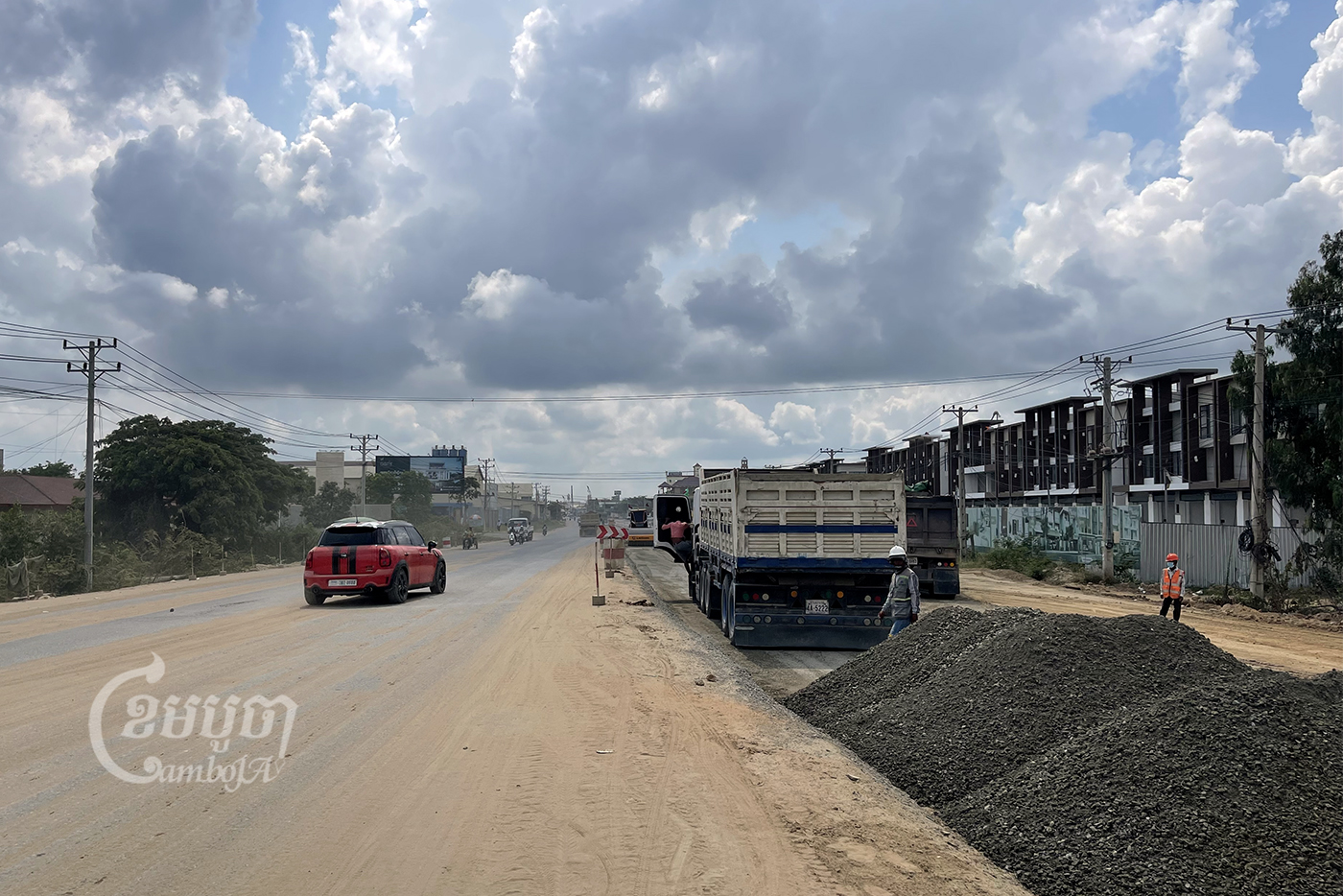
Pech Pisey, executive director of Transparency International Cambodia, said poor quality road construction has cost the country’s economy.
He said public investment requires transparency in procurement tenders to select qualified companies, avoiding the use of the national budget to repair roads repeatedly.
“Accountability and transparency from the beginning of the bidding to the implementation of the project is very important,” he said. “In the previous time, we had also seen some irregularities in the bidding process which were linked to bribery.”
He said some companies do not have enough capacity to complete projects but are still allowed to join bidding.
“So, we ask the government to oversee the low-quality public infrastructure and [find ways] to reduce costs to save the national budget,” he said.
Transparency International’s 2021 Corruption Perceptions Index (CPI) ranked Cambodia as the most corrupt country within ASEAN, placing the kingdom at 157 among 180 countries and territories globally.
San Chey, the executive director at the Affiliated Network for Social Accountability (ANSA), said while all road infrastructure projects are subject to Cambodia’s existing public procurement law, the implementation so far has yet to completely follow the rules.
“I think the poor-quality roads are due to the company’s attitude and the government’s negligence in monitoring each stage,” he said. “The government should consider not allowing bidders to hire subcontractors that would affect road quality.”
However, residents such as Seng Kroeun, who lives along National Road 2 in the Kandal Stung district of Kandal province, said he was unaware of issues with poor-quality roads and is just happy to see new roads being built.
“Having new roads makes it easier for us to live and run a business, as well as travel,” he said.
Seak Lim, another villager living along National Road 2 in Kandal Stung district, shared similar feelings.
“When we have a new road, we will be able to do business for daily life,” she said.


